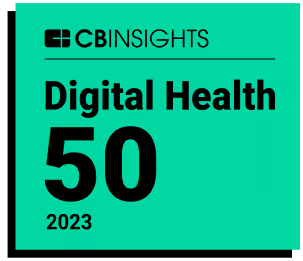AI’s transformative effect on healthcare is not occurring in a vacuum. Its growing impact stems not only from technological advancements, but from its ability to help medical professionals and healthcare organizations adapt to the demands of value-based care. That makes it particularly important to hear from the medical professionals and healthcare administrators who deal with the realities of VBC every single day.
With that in mind, Navina recently hosted our VBC Initiatives Roundtable – an exclusive discussion between seasoned experts. Since the event was exclusive and off-the-record, we aren’t sharing the names of the participants and the organizations they work for, but we’re happy to share the event’s essential takeaways with you.
Education and financial incentives can significantly improve risk adjustment, but they’re not enough
Roundtable participants discussed the challenge of ensuring that their clinicians’ HCC coding is as complete and detailed as possible, highlighting some key strategies that can make a significant difference. They pointed out that a lack of deep knowledge of HCC codes can be a major hurdle, and clinicians are typically more focused on actually delivering medical care than on coding. Facing those twin challenges, both educational initiatives and financial incentive programs can help ensure that clinicians have the knowledge and the motivation to code accurately and comprehensively. But our panelists argued that even these types of efforts are not enough to overcome the challenges of coding – making AI the only feasible way to truly get on top of HCC coding.
An Executive Medical Director at a healthcare technology company focused on physician enablement in value-based care, pointed out that HCC coding simply isn’t the top priority for clinicians, who are far more concerned with delivering the best care possible than with administrative tasks. “No matter how much money you throw at it, no matter how much education you throw out it – incentivizing them is always going to be hard,” he said, pointing to automation as the key to addressing the challenges of HCC coding effectively.
When done right, transparency and healthy competition can improve both quality performance and HCC coding
When discussing HCC coding and performance on quality metrics (including closing care gaps), participants shared anecdotes of improvements achieved by building a healthy sense of competition among clinicians. They asserted that when done right, internally sharing data on each clinician’s performance can create an extra incentive to excel in both quality performance and HCC coding.
“If you really want to see the difference, develop some graphs with the quality measures and put the physician's name under each one of them, under each location. And you watch the change happen,” said a Director of Population Health Services at a multi-discipline healthcare system in the Midwest. “So that's what we did from the very beginning, made it totally transparent… And it does work.”
“Our doctors actually want to know how they do among their peers,” concurred an Assistant Director of Provider Engagement and Quality at an independent physician association from the East Coast. “We started a provider ranking in our group to share how they do among their peers. We also do a month-over-month improvement tracking on our tool to see how our providers are doing on care gap closure, and then we follow up with them on a monthly basis.”
The variety of EHRs in use can be very cumbersome, and simplifying their landscape is one key use case for AI
Another major challenge that our conversation explored is the wide variety of EHR platforms in use within a single healthcare organization. It’s no secret that that can make clinicians’ work less efficient, adding to their administrative burden. But AI can bridge the gap, adding consistency to the clinicians’ experience and simplifying the process of working across various systems.
“In our provider group, we actually have over 40 different EMRs that are currently in use by our doctors. Although a majority of them use two, it's still quite challenging,” said a participant, highlighting their organization’s commitment to overcoming this difficult situation by “leverag[ing] technology to help our doctors and streamline their workflow as well.”
Teamwork is essential – not only among clinicians, but also between clinicians and AI
The importance of teamwork in healthcare is one critical point that came up repeatedly over the course of our discussion. The experts pointed out the central role that nurses play in closing care gaps, making cooperation and collaboration between them and doctors especially crucial. And as they discussed the growing role of AI in healthcare, they pointed to the need for a cooperative and collaborative relationship between clinicians and technology.
Summarizing this part of our conversation, one participant emphasized the importance of cooperation – not only among clinicians, but also between them and cutting-edge technology. “I think teamwork makes the dream work,” she said. “And doctors with the right tool – in this case, automation or AI – will outperform doctors without.” “I think automation is the direction we're going in, but I think it needs to not be necessarily cookie-cutter,” said another participant. “The providers need to continue to have autonomy [to] make their decisions.”
As healthcare rapidly moves towards automation and AI, we should expect major imminent changes
One of the most interesting aspects of our discussion was hearing predictions about the future of the medical field and AI. Many emphasized that since we’re really at the beginning of the AI revolution, its role in medicine will only expand as intelligent tools become increasingly sophisticated – and that we should expect it to bring about major changes in even the near future.
As AI continues to progress and VBC continues to shape the future of healthcare, we’re eager to see how medical professionals and healthcare organizations keep improving their ability to overcome the challenges raised during our Roundtable.
Would you like to participate in one of our upcoming roundtable discussions? Please reach out to us to talk to an expert.



.png)


.png)



.png)













